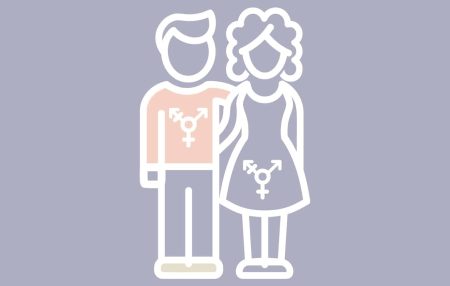17 August 2023
The international surrogacy and assisted reproduction landscape continues to evolve rapidly. There have been multiple changes to assisted conception and international surrogacy law and policy in recent months. These changes have taken place in Italy, the Republic of Georgia, Greece, the Ukraine and Russia, making it essential to keep on top of developments in fertility treatment and international surrogacy and consult an expert international surrogacy lawyer.
Surrogacy Ban in Italy
Italy has banned surrogacy since 2004. However, Italy’s right-wing coalition government led by Prime Minister Giorgia Meloni has sought to toughen the legal position even further by approving a bill in the Chamber of Deputies at the end of July 2023 making it a criminal offence for Italians to enter into overseas surrogacy arrangements as well, carrying fines of up to €1m (£856,690) and imprisonment of up to two years. Whilst the bill still needs to be approved by the Italian senate before it becomes law, it has created fierce debate about approaches to reproductive rights and the treatment of women and children in Italy and worldwide.
This follows an announcement in March 2023 by the Italian government that state agencies should no longer register the births of children of same-sex parents and news reports that it has begun to retrospectively strip lesbian mothers of their legal parentage by removing them from their children’s birth certificates. Added to this, IVF is only available to heterosexual couples in Italy. This is creating a climate of anxiety and legal uncertainty for Italian parents, children and families formed through fertility treatment and surrogacy impacting entitlement to healthcare, inheritance and child support and removing and restricting legal parental rights.
Surrogacy in The Republic of Georgia
In June 2023 came news that the Republic of Georgia will ban overseas intended parents from undertaking international surrogacy arrangements from 1 January 2024. Over the last ten years, the Republic of Georgia has become an international surrogacy destination of choice for intended parents prohibited from undergoing surrogacy at home or seeking lower-cost surrogacy arrangements abroad. News of the international ban will impact intended parents from all over the world. In future, only Georgian citizens will be able to undertake surrogacy in the Republic of Georgia and there are government indications that this may only be permitted on an altruistic basis, with restrictions placed on advertising as well.
The international surrogacy ban in the Republic of Georgia has been triggered by growing safety concerns for surrogate mothers and children, as well as trafficking and exploitation concerns and fears that surrogate born babies are being handed over to same-sex couples in violation of Georgian law. There have been mounting concerns about unethical and bad practices including sale of children, organ trafficking, mistreatment of women including forcing early birth to prevent full payment causing mental and physical health complications and lack of adequate legal regulation of international surrogacy. Furthermore, concerns have been growing that vulnerable women have been economically exploited and lured into becoming surrogates with offers of $20,000.00 – $27,000.00 per pregnancy. healthcare, babysitting services and even a new iPhone. In Georgia, the average female employee earns under $550 per month, whilst 42 percent of Georgian citizens live on less than $5.50 a day according to a World Bank report (2021).
Surrogacy in Greece
In Greece, news reports broke in early August 2023 that Greek police have shut down a network allegedly exploiting surrogate mothers and egg donors. News reports state that eight suspects were arrested on 8 August 2023 in a nationwide operation that focused on a fertility clinic on the Greek island of Crete. Charges allegedly include human trafficking, illegal adoption of minors, buying and selling of genetic material, falsification of medical file data, fraud, forgery and false medical certificates intended for judicial use. It is reported that “vulnerable foreign women” were allegedly recruited to donate eggs and become surrogates, with some donating eggs and then carrying a surrogate pregnancy, and further reports that 30 pregnant women were found in squalid living conditions. Since December 2022, Greek police have reportedly documented 182 incidents in which women were allegedly exploited as surrogate mothers or egg donors.
Greece legally permits regulated altruistic surrogacy arrangements which are open to international heterosexual couples and single women with overall surrogacy costs of €70,000.00 – €100,000.00 for a child. Surrogacy contracts are valid and enforceable if there has been been pre-conception authorisation by the Greek Court.
However, this latest series of arrests in Greece follows concerted efforts by the Greek authorities in recent years to combat concerns about human trafficking, as well as surrogacy and assisted reproduction practices. In December 2022, Greek police reported that it had shut down an international human trafficking ring that was illegally transferring foreign nationals to and from Greece. In 2022, the police arrested suspects involved in a human trafficking ring on the island of Rhodes. In 2019, news also broke that Greek authorities had shut down a €500,000 international baby-smuggling network accused of selling and illegally adopting babies born to vulnerable Bulgarian women who had been transported to Greece to give birth in private hospitals. The same group was also accused of transporting women to Greece from Bulgaria, Georgia and Russia where they underwent fertility treatment and sold their eggs.
Surrogacy in The Ukraine and Russia
The ongoing Russian war in the Ukraine has also greatly affected the Ukrainian fertility treatment and surrogacy sector. Before war broke out at the end of February 2022, the Ukraine was another international surrogacy destination of choice for intended parents prohibited from undergoing surrogacy at home or seeking lower-cost surrogacy arrangements abroad. Ongoing war in the Ukraine with continuing missile attacks and fighting creates many dangers for anyone undertaking surrogacy there including: risks navigating Russian checkpoints in occupied territory, attacks on critical infrastructure including energy (disrupting electricity and water supplies and heating), damage to bridges and roads, educational and cultural facilities and residential housing stock. This creates significant difficulties and risks practically and legally for everyone involved and has led to a shift in focus away from the Ukraine to other surrogacy destinations including Africa, Mexico and Argentina. The ongoing warzone in Ukraine serves as a reminder of the importance of undertaking surrogacy in destinations that are stable, free from political instability and war and benefiting from clearly defined laws.
Added to this, in December 2022 President Putin signed a law banning foreigners from undertaking surrogacy in Russia and preventing the use of donor eggs in IVF treatment. This new law was reportedly introduced to prevent child trafficking and the handing over of babies to same-sex couples or for the sale of organs and to stem concerns that more than 45,000 children have left Russia in recent years.
International Surrogacy Law
Given rapidly evolving law, policy and practice governing surrogacy and fertility treatment it is now more important than ever that intended parents carefully navigate the associated legal issues and ensure they can put in place a viable legal and practical action plan before embarking upon an international surrogacy journey.




